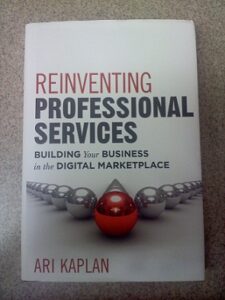In every industry, there appear to be some people who cling to the old school ways and others who fully embrace innovation. Apparently in publishing, there is animosity between writers whose work is published by the Big Publishing Houses and writers who self-publish. Allegedly some people who are represented by Big Publishing claim that people who are self-published do not qualify as authors because they didn’t go through the same process to publish their work. In the big picture, it doesn’t matter. All writers have the desire to communicate their work and have to work hard to cultivate a following — let alone put the words on the page.
In the Arizona legal community, one source of animosity is the law school from which one matriculated. Until recently, Arizona had only two law schools: Arizona State University (ASU) and the University of Arizona (UofA). There is an ongoing rivalry between these school based on who is ranked higher. In 2004, a new law school entered the scene: Phoenix School of Law (PSL). This school is accredited by the American Bar Association (ABA); however it is not ranked in the top 100 law schools by the U.S. News. PSL has the reputation of being the school that people go to when they couldn’t get into ASU or UofA and that students hope to perform well enough during their 1L year so they can transfer to a better school.
I was not prepared for the hostility that some people have towards PSL graduates. Earlier this summer, an article was released that stated that 1/3 of 2010 law school graduates have jobs that do not require passing a bar exam. The responses from two of my classmates were appalling.
- “This is why I hate…… PSL kids….. yes I’m going public with this comment and I don’t G.A.F.  If you want to be a lawyer, go to a real school and stop saturating the saturated market.  Was that too harsh? Whatever, I know everyone is thinking it.â€
- “I agree. And the ABA could have a huge role to play by making law school accreditation more difficult. The problem is that there is a consent decree with the FTC which means that the ABA can’t refuse accreditation to more law schools or cut off accreditation to make fewer lawyers because it would be “anti-competitive.” The problem now, of course, is that there’s too much competition and too many bottom-feeding, hungry lawyers.â€
These comments were made by two people who had not yet taken the bar when they made these statements. My response: Who are they to judge? We all took the LSAT, got into a law school, passed our classes, and graduated. Everyone who passes a bar exam has the right to be a lawyer if they chose to be (and can find work), regardless of the road they took to get there.
These comments show the immaturity, insecurity, and enormity of their egos. During my 1L orientation, the then-dean of the law school encouraged us not to tell lawyer jokes because it perpetuated the image of the legal profession as being full of soulless, greedy, and unscrupulous ladder climbers. Unfortunately, this reputation is still earned by many lawyers now coming out of the gate.
My friend, Eric Mayer, is a brilliant criminal defense lawyer who says, “Good lawyers are not made by their law schools.†Law school is just the beginning of a legal career. A lawyer’s reputation should not be based on where they went to law school, but rather on their intelligence, competence, and ethics. I surprised an ASU law professor this week when I told her that I did not care about the future reputation of my law school because the body of my work will be more determinative of whether I’m a good lawyer.
If the legal profession wants to change its reputation, it should try to screen out these arrogant people when they apply to law school and continuously foster the idea that there’s a place for all types of people to be lawyers. More realistically, I suppose, schools should integrate elitist conversations into their classrooms and truly take the time to debate students who repeatedly demonstrate this type of arrogance. I hope comments like those enumerated by my classmates are not the norm for my class, my school, or the legal profession, but I have my doubts.
Having a different educational background does not make a person a bad lawyer. It just makes them different, and it’s this diversification that permits the profession to grow and remain relevant. Just as self-published writers may be looked down upon as being less credible, it is those who take a different path that are now spearheading certain areas of the industry. If you have a hang up about a person’s legal education, hire someone else.





